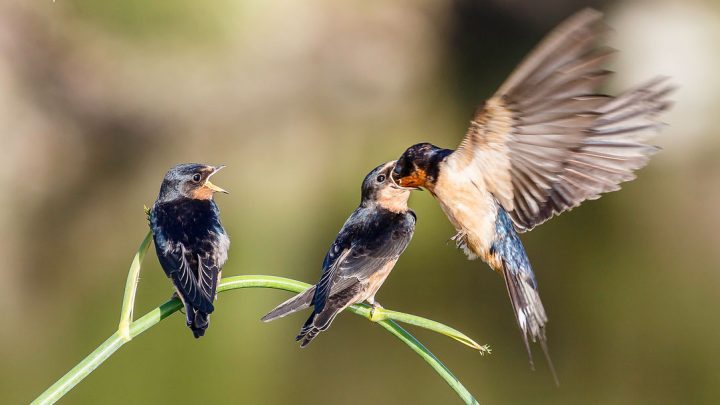Do parent and baby birds recognize each other’s songs or calls?

Adult birds may or may not recognize their young, depending on the species and nesting habits.
The Brown-headed Cowbird lays its eggs in the nests of other species. The host species does not seem to notice the difference between the calls of their own babies and that of the cowbird.
Adults of species such as Barn Swallows never learn to recognize the calls of their own young. This pattern may have developed because the young birds become independent immediately after fledging or because they remain isolated in their family group until they are fully independent.
In colonial species the situation is very different. Within a few days of hatching, adults learn to recognize the voices of their own chicks, and vice versa. Herring Gulls, for example, may accept tiny young into their nest for a short period after their own eggs have hatched. After two to three days, however, they will not allow strange young into their nesting area.

All About Birds
is a free resource
Available for everyone,
funded by donors like you
American Kestrel by Blair Dudeck / Macaulay Library
